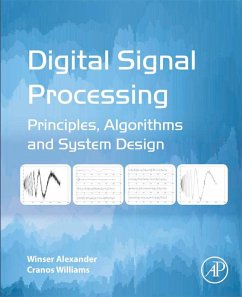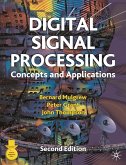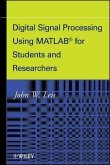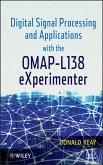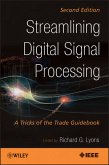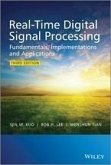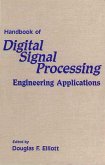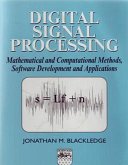Digital Signal Processing: Principles, Algorithms and System Design provides an introduction to the principals of digital signal processing along with a balanced analytical and practical treatment of algorithms and applications for digital signal processing. It is intended to serve as a suitable text for a one semester junior or senior level undergraduate course. It is also intended for use in a following one semester first-year graduate level course in digital signal processing. It may also be used as a reference by professionals involved in the design of embedded computer systems, application specific integrated circuits or special purpose computer systems for digital signal processing, multimedia, communications, or image processing.
- Covers fundamental theories and analytical procedures that form the basis of modern DSP
- Shows practical implementation of DSP in software and hardware
- Includes Matlab for design and implementation of signal processing algorithms and related discrete time systems
- Bridges the gap between reference texts and the knowledge needed to implement DSP applications in software or hardware
Dieser Download kann aus rechtlichen Gründen nur mit Rechnungsadresse in A, B, BG, CY, CZ, D, DK, EW, E, FIN, F, GR, HR, H, IRL, I, LT, L, LR, M, NL, PL, P, R, S, SLO, SK ausgeliefert werden.

